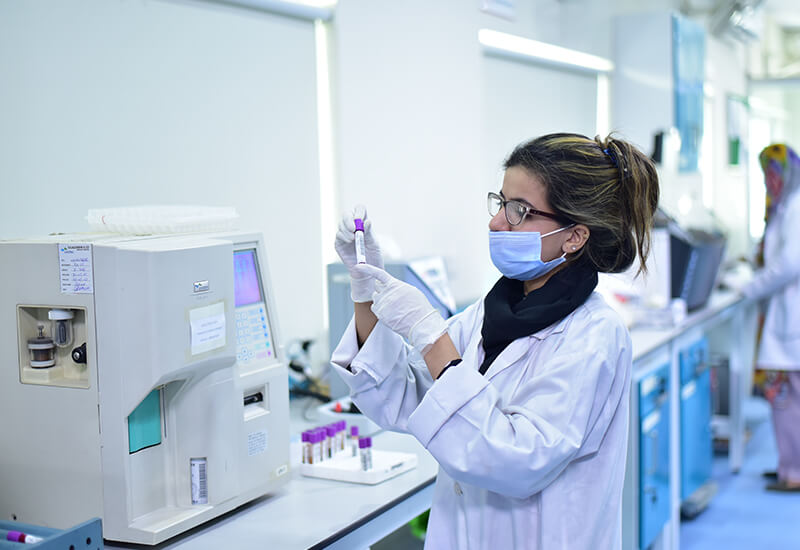The oncoming of Coronavirus has brought forward notions of extreme uncertainty around the world. Issues ranging from health concerns, psychological concerns, to economic impacts, the pandemic continues to leave a mark on the population as a whole. The fight against this virus requires the individuals around the world to take the necessary precautions, test in case of suspicion, and therefore, follow the necessary SOPs to ensure personal safety, as well as the safety of others.
The virus exposure, from its emergence, has increased at such a rate that it is predicted that it is only a matter of time before it would be impacting every individual around the world. Therefore, it is vital for individuals to understand the importance of lab testing and getting a proper diagnosis; to ensure there is no further spread of neither the virus, nor any medical complication from un-identification.
The lab tests available for the virus can be divided into three broad categories: antigen tests, antibody tests, and molecular/PCR tests. These types would be discussed below in further detail.
- Antigen Tests:
These are considered to be the rapid diagnosis tests available for the virus. To obtain the sample, a nasopharyngeal swab is taken to find any protein of the virus. The tests are helpful in finding individuals near the infection stage, or at the peak of the infection. A positive aspect of these tests is that they are generally a lot faster and cheaper in providing with the results.
However, the major issue arises with their accuracy. These tests are generally less accurate than the other lab tests that are available. For example, if the individual is not nearing the peak stage of the virus, the result can come back negative, despite the individual actually having the virus. Similarly, along with false negatives, there are problems of false positives as well. The false positives could be from the result of other similar infections, or improper handling methods.
- PCR/Molecular Tests:
In the general terms, if we look into the matter, not all molecular tests apply the use of PCR (polymerase chain reaction), but the aspect is vital for the diagnosis of COVID-19. The test works by identifying the genetic makeup of the virus: RNA. The method of collection of the sample is similar to the antigen tests, in which nasopharyngeal swab is taken. The test, however, takes hours to produce the result, but ensures 100% accuracy. This is majorly due to the fact that these tests are highly sensitive in detecting the virus.
However, it needs to be understood that handling the test is a tedious task, and not all carried out tests are perfect. If the molecular test is not maneuvered in the correct manner, the chance of false positives increases to fifteen to twenty percent. The drawback for this test is that even if the individual has recovered from the virus, the test can still detect traces of it, which may lead towards the problem of false positives.
- Antibody Tests:
Unlike the previously mentioned two tests, these tests are not used for the diagnosis of the virus. Another name for the test is the serology test. It uses the blood sample of individuals to detect whether the antibodies exist within the bodies that fight off the virus; thus giving insights on the immune systems of the individuals tested. The test can detect if someone had the virus in the past, but is not helpful in finding out current infections. Experts have said that the importance of the test would be generated, after a proper vaccine exists.

